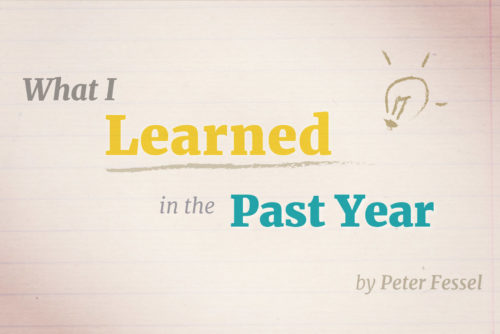Our inner-environment determines how we perceive the things outside us. But how often do we take the time to check-in on what’s going on inside?
If we’re feeling anxious one day, then everything around us will seem a bit threatening, uncomfortable and irritating. If we’re feeling relaxed, things around us will be experienced as more friendly, calm and easy-going.
So if our inner-environment dictates how we perceive our outer-environment, then it would seem pretty logical to take a look at what’s going on internally before jumping the gun and concluding our external experiences are responsible for how we feel.
It’s easy to get lost, distracted or not even know what we’re looking for during our inner-exploration. In order to focus our attention on specific areas and keep track of our progress, we use the marvelous tool of freewriting.
Welcome to Freewriting
Freewriting is writing which knows no bounds.
There are no rules, sentence structures, grammatical hyberbole or certificates of authentication. It seems we’ve slipped into a little bit of freewriting write here on this page. Isn’t that intersting a little demonstration in progress. Let’s so how er go and where we go with this and it’s all just coming out there will be no editing of this at a later stage. There is no need. It’s just coming out and that’s all that happens here. All that happens here.
So you simply write, and whatever comes out, comes out. It could be that you write poops! a thousand times – and that would be well within the bounds of this boundaryless writing.
At first, you may find it unnatural to just write without going back and correcting the mistakes you see. But it is vital that you just write, mistakes and all.
Ask yourself questions, write down your answers. Ask more questions.
You may feel self-conscious, critical or straight-up embarrassed – but these are all the things to write about and not reasons to stop writing.
When you allow yourself to write freely you gain new insights into your thoughts and feelings.
What Does it Do?
The benefits of freewriting are numerous, perhaps unlistable in their entirety. You’ll discover your own benefits as you continue to write.
Some of the direct benefits I’ve experienced from freewriting are:
- Higher levels of creativity
- Clearer thinking and problem solving abilities
- Greater self-confidence, self-acceptance and the acceptance of others.
- Ability to identify blocking factors for self-growth and development
- Less self-doubt and criticism
- Greater understanding of your thoughts and feelings
- Stronger sense of intuition
The act of writing things down provides a focused outlet for everything that’s going on inside you. Once it’s written down, your inner-environment is then seen from a different perspective, no longer existing as a bundled mass of thoughts and emotions.
How Long Do I Write For?
Just write for as long as it feels natural. There is no minimum or maximum writing length, but I would recommend starting with at least two pages of handwritten text or 750 computer-words.
The reason for writing more than just a few sentences at a time is that as you begin to write there is usually a lot of random stuff on the surface which will come flying out first. Once you move through this stage you’ll move naturally deeper towards exploring more specific issues, feelings and thoughts.
Particularly Good Moments to Write
Aside from your daily writing time, there are certain times when it can be particularly helpful to take timeout and write.
- When there are strong emotions going on inside
- When you’re faced with a confusing or challenging situations
- When you need a break from the busy-bustlings of life and would like to re-connect with yourself.
Freewriting as a Regular Practice
Incorporate freewriting into your everyday routine and stay connected with what’s going on inside you.
Staying in touch with your inner-environment gives you a sense of assurance you carry wherever you go.
Make it Yours.
I’d encourage you to take freewriting for a test run for seven days and see how you feel. And like everything on this site, it really is all hearsay unless you try it for yourself.
You decide when, where and how you do your freewriting.
You don’t have to call it freewriting – makeup your own cool name for it. Night-time notes, morning musings, tiny writing time, mind-dump, daily check-in, stream of consciousness, self-exploration – whatever you like.
Personally, I find it nice to have a particular notebook where I do my writing. Or if I’m writing on my computer then I’ll setup a special folder which contains all of my daily writing sessions for that month.
But whatever medium you choose, make a time for yourself and write.





